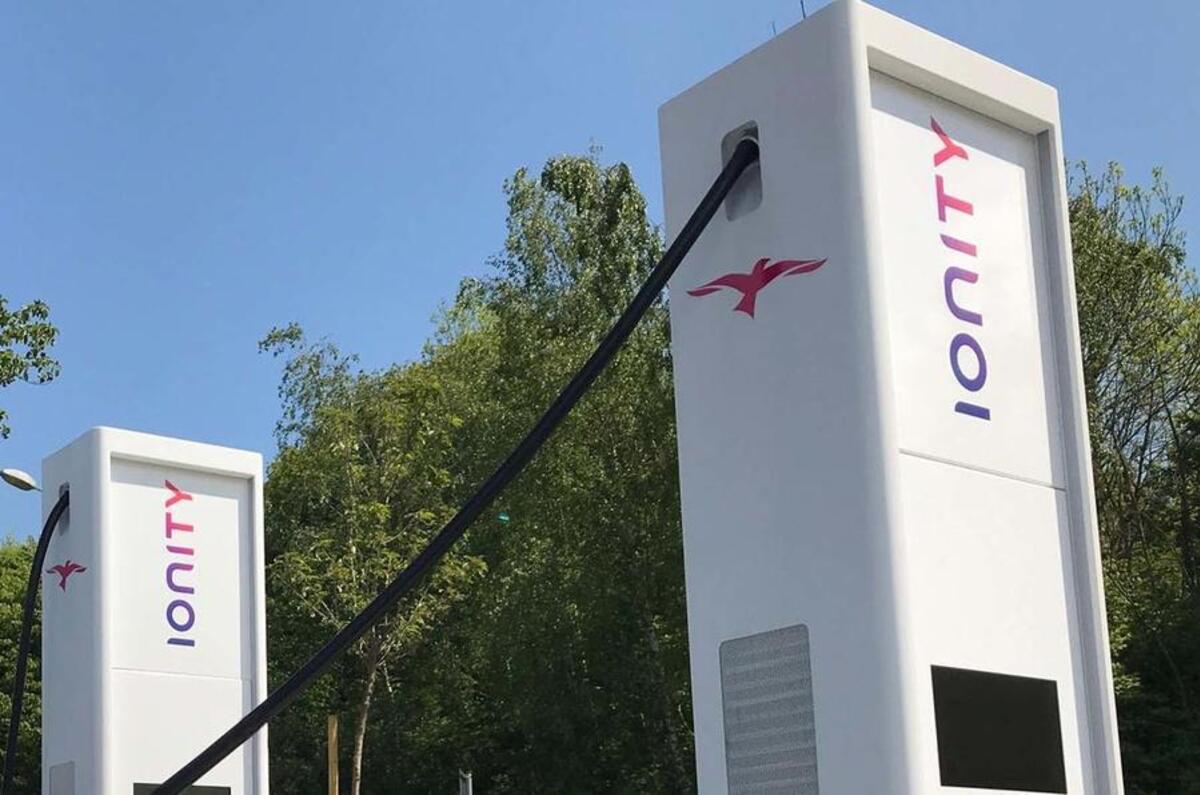EV charging firm Ionity, which is present in 24 European countries, will invest €700 million (£588m) in the expansion of its network in the run up to 2025.
With capital contributed by a new partner, American investment firm Blackrock, Ionity seeks to more than quadruple the amount of 350kW rapid chargers it operates from 1500 to 7000 by 2025.
The new devices will be installed on motorways, near major cities and alongside "busy trunk roads", and Ionity has confirmed plans to bump up the average number of chargers per location to between six and 12.
Busy existing sites will be upgraded as part of the expansion programme, too, with the installation of extra chargers.
Ionity said: "These measures will enhance the customers' charging experience and make sure that the Ionity network is prepared for the increasing demand for electric vehicle charging."
It hasn't revealed exactly where the new chargers will be located, nor how many will be installed in the UK. Currently, it operates devices at 14 different locations in the UK and has two more under construction.
The planned expansion has been detailed as part of a drive to cater to a forecasted uptick in EV adoption.
Ionity said: "The electrification of the mobility sector is crucial to achieve increasingly urgent net-zero targets. Since most fossil fuel-powered cars are to be replaced by electric vehicles in the next 10 years in line with EU legislation, a massive expansion of charging infrastructure that is powered by 100% renewable energy is essential."
New investor Blackrock is the first Ionity stakeholder from outside the car industry. Existing stakeholders include Audi, BMW, Ford, Hyundai, Kia, Mercedes-Benz and Porsche.
David Giordano, who heads up Blackrock's Renewable Power division, said EV infrastructure is "vital to achieve a net zero future" and that the company is "delighted to be supporting [Ionity's] growth ambition and providing our clients with access to an innovative company".









Join the debate
Add your comment
Works out at around £110,000 per charger. That'll be why they, ahem,charge £0.69 per kWh then. What's domestic price? £0.18 per kWh? That's a phenomenal mark up even allowing for higher capacity charges from grid. Once government's start adding tax to replace fuel duty these are going to be horrendous - can see them getting wiped out by less greedy charging companies, and only being used in emergencies once people wuss the charlatans out.
It's, if everybody was singing and Dancing from the same music sheet, we'd get things done a whole lot faster, but, humans are involved,so, no, it's going to bump along the bottom gradually getting there.
This is where shell, bp etc should be in a far bigger way than present.
If Ionity is going to have 16 locations in the UK, that's about 1 every 6,000 square miles.
Plenty of space for others...
That's 16 currently, the 700,000,000 throughout Europe is a new injection of cash for new locations